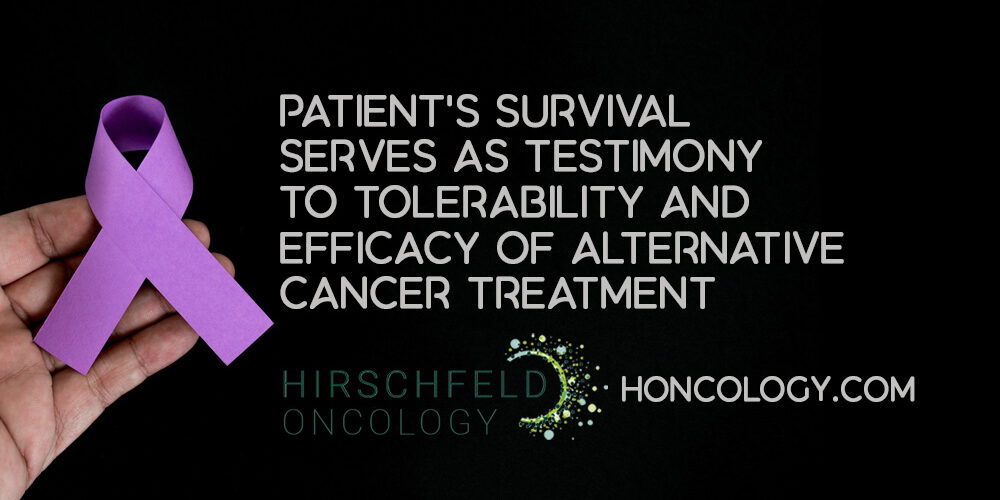Harnessing the Immune System: A New Frontier in Cancer Care
Immunotherapy has revolutionized cancer treatment by harnessing the body's own immune system to recognize and destroy cancer cells. Unlike traditional therapies such as chemotherapy and radiation, immunotherapy empowers the immune system to perform its natural function of tumor surveillance and elimination.
Cancer immunotherapy includes diverse approaches like immune checkpoint inhibitors, adoptive cell therapies (like CAR-T cells), cancer vaccines, and oncolytic viruses. These treatments work by enhancing immune cell activation, overcoming tumor immune evasion, or directly targeting cancer cells.
The immune system plays a pivotal role in cancer control through mechanisms such as dendritic cell activation, T cell priming, and immune surveillance. However, tumors often develop strategies to escape immune detection, including expressing inhibitory checkpoint proteins or creating an immunosuppressive tumor microenvironment.
Over recent decades, treatment paradigms have evolved dramatically. Immune checkpoint inhibitors, targeting molecules like PD-1 and CTLA-4, were among the first breakthroughs, enabling T cells to attack tumors more effectively. Meanwhile, adoptive cell therapies engineer immune cells for precise targeting of cancer.
This transformative approach is changing outcomes across multiple cancer types, offering durable responses and long-term survival advantages. As research advances, immunotherapy continues to expand, laying the foundation for personalized cancer treatments that mobilize the immune system as a powerful therapeutic weapon.
Cancer Immunotherapy Key Facts
- Immune checkpoint inhibitors enhance immune response by blocking checkpoint proteins like PD-1, PD-L1, and CTLA-4.
- FDA-approved checkpoint inhibitors include Pembrolizumab (PD-1), Nivolumab (PD-1), and Ipilimumab (CTLA-4).
- Checkpoint inhibitors have improved survival in melanoma, lung, and head and neck cancers, with some patients exceeding 10-year remission.
- Challenges include immune-related adverse events and resistance, especially in tumors with low PD-L1 or immunosuppressive microenvironments.
- Biomarkers such as PD-L1 expression, tumor mutational burden, and microsatellite instability guide patient selection for therapy.
- CAR-T cell therapy involves genetic modification of T cells to target cancer, showing high success in hematologic cancers but challenges in solid tumors.
- Next-generation CAR-T developments include dual-targeting, safety switches, CAR-NK cells, and TCR therapies to expand effectiveness and safety.
- Oncolytic viruses like T-VEC selectively infect and kill cancer cells, also stimulating systemic immune responses, approved for metastatic melanoma.
- Personalized neoantigen vaccines use mRNA technology to target tumor-specific mutations, with ongoing trials showing promise especially in high TMB tumors.
- IL-15 cytokine reactivates NK and T cells within tumors, overcoming immune suppression and enhancing the efficacy of combination immunotherapies.
1. Immune Checkpoint Inhibitors: Unlocking T-Cell Potential

What are immune checkpoint inhibitors and how do they work?
Immune checkpoint inhibitors are a class of drugs designed to enhance the immune system's ability to fight cancer by blocking checkpoint proteins such as PD-1, PD-L1, and CTLA-4. These proteins normally act as brakes on T cells to prevent overactivation, but cancer cells exploit them to evade immune attack. By inhibiting these checkpoints, drugs restore T cell activity and enable more effective recognition and killing of tumor cells.
FDA-approved checkpoint inhibitors and their targets
Several immune checkpoint inhibitors have been approved by the FDA, including:
- Pembrolizumab (Keytruda): Targets PD-1; approved for melanoma, non-small-cell lung cancer (NSCLC), head and neck cancers, and more.
- Nivolumab (Opdivo): Also PD-1 inhibitor; approved for melanoma, NSCLC, renal cell carcinoma, and other tumors.
- Ipilimumab (Yervoy): Targets CTLA-4; primarily used in melanoma and in combination therapies.
These drugs work by blocking the interactions between PD-1 on T cells and PD-L1/PD-L2 on tumor cells or antigen-presenting cells, as well as inhibiting CTLA-4, which limits early T cell activation.
Clinical successes
Checkpoint inhibitors have transformed the treatment landscape for cancers such as melanoma, lung cancer, and head and neck squamous cell carcinoma. For example:
- Advanced melanoma patients have seen 10-year survival rates exceeding 50% when treated with combination checkpoint therapies (immune checkpoint inhibitors).
- In head and neck cancers, pembrolizumab combined with standard treatments has significantly improved survival, delaying recurrence and spread (pembrolizumab clinical breakthrough).
- NSCLC patients benefit from PD-1/PD-L1 inhibitors alone or in combination with chemotherapy, showing improved progression-free and overall survival (FDA-approved immune checkpoint inhibitors).
Challenges and management
Despite these successes, some patients experience immune-related adverse events (irAEs) due to immune system overactivation. These can affect organs like the skin, liver, lungs, and gastrointestinal tract. Resistance to checkpoint blockade also limits efficacy in some tumors, especially those with low PD-L1 expression or an immunosuppressive tumor microenvironment.
Biomarkers guiding therapy
Biomarker analysis assists clinicians in selecting patients likely to benefit from checkpoint inhibitors. Important markers include:
- PD-L1 expression on tumor or immune cells correlates with better responses.
- Tumor mutational burden (TMB), where higher mutation levels typically predict improved immunotherapy efficacy.
- Microsatellite instability (MSI) and mismatch repair deficiency (MMRd) tumors show enhanced sensitivity to ICIs.
These biomarkers enable a personalized approach to immune checkpoint blockade, optimizing outcomes and reducing unnecessary exposure.
Immune checkpoint inhibitors continue to evolve with ongoing research into novel targets (e.g., LAG-3, TIGIT) and combination strategies to overcome resistance and improve safety (current advances in immunotherapy.
2. CAR-T Cell Therapy: Engineering Immune Cells to Target Cancer

What progress has been made in CAR-T cell therapy for cancer?
CAR-T cell therapy involves genetically modifying a patient's own T cells to express chimeric antigen receptors (CARs) that specifically recognize cancer cell antigens. This approach has achieved remarkable success, especially in hematologic cancers such as B-cell leukemias and lymphomas, with some cases showing complete responses exceeding 90%. These engineered T cells can target and kill cancer cells effectively, often leading to durable remissions.
Success in treating hematologic cancers
CAR-T therapies have been FDA approved for several blood cancers, including lymphomas and leukemias. They exploit CARs that target proteins like CD19 on B cells, enabling precise attack on malignant cells. Clinical results show high response rates even in cases resistant to other treatments.
Challenges in solid tumors
Despite their success in blood cancers, CAR-T therapies face hurdles in treating solid tumors. Challenges include:
- Antigen heterogeneity: Solid tumors often have diverse or low-expression tumor antigens, making it difficult to target all cancer cells effectively.
- Tumor microenvironment (TME): Immunosuppressive factors and physical barriers like dense extracellular matrix and abnormal vasculature limit CAR-T cell infiltration and function.
Advancements improving CAR-T therapy
To overcome these obstacles, researchers are developing next-generation CAR-T cells with innovations such as:
- Dual-target CARs: Allowing T cells to recognize multiple tumor antigens to prevent tumor escape.
- Safety switches: Genetic modifications to control CAR-T activity and reduce toxicity.
- Combination strategies: Pairing CAR-T cells with immune checkpoint inhibitors or therapies that modulate the tumor microenvironment (TME) to enhance efficacy.
Emerging CAR-based therapies
CAR-based strategies are expanding beyond conventional CAR-T cells to include:
- CAR-NK cells: Natural Killer cells engineered with CARs offer advantages like lower toxicity and off-the-shelf availability.
- TCR therapies: T cell receptor-engineered therapies that recognize intracellular tumor antigens presented by MHC molecules, broadening the scope of targetable cancers.
These advancements aim to improve response rates, safety, and durability of immunotherapy across diverse cancer types, paving the way for more personalized and effective treatments.
3. Oncolytic Viruses: Turning Viruses into Cancer Fighters

How do oncolytic viruses work in cancer immunotherapy?
Oncolytic viruses are genetically engineered viruses designed to selectively infect and kill cancer cells without harming normal tissue. Once they infect tumor cells, these viruses replicate, causing the cancer cells to burst. This process is known as immunogenic cell death, which releases tumor antigens and viral particles that activate and stimulate the body's immune system to recognize and attack cancer more broadly.
Examples and FDA approval
A notable example is talimogene laherparepvec (T-VEC), an oncolytic herpes simplex virus modified to enhance tumor killing and immune stimulation. T-VEC is an FDA-approved metastatic melanoma treatment, where it directly lyses tumors and also promotes systemic immune responses against cancer cells beyond the injection site.
Combination therapies and overcoming resistance
Oncolytic viruses can be combined with immune checkpoint inhibitors or other combination chemo-immunotherapy to improve response rates and tackle resistance mechanisms in tumors. This combination approach leverages the virus’ ability to turn “cold tumors”—those less infiltrated by immune cells—into “hot tumors” that are more susceptible to immune attack.
Emerging research and future directions
Research is underway to develop novel oncolytic virus platforms targeting various cancers beyond melanoma. New viruses are engineered to express immune-stimulating factors or to target the tumor microenvironment more effectively, broadening their therapeutic potential.
Overall, oncolytic viruses like T-VEC oncolytic virus represent a promising immunotherapy that not only kills cancer cells directly but also boosts the body’s immune defenses to fight cancer systemically, with ongoing innovations enhancing their applicability.
4. Personalized Cancer Vaccines and Neoantigen Targeting
What role do personalized cancer vaccines play in immunotherapy?
Personalized cancer vaccines are a cutting-edge cancer immunotherapy approach designed to stimulate the immune system specifically against tumor-specific neoantigens in cancer—mutated proteins unique to an individual's cancer. Utilizing mRNA technology in cancer treatment, similar to that used in COVID-19 vaccines, these vaccines train the immune system to recognize and attack cancer cells more effectively.
Development of mRNA vaccines directed at tumor-specific neoantigens
Recent advances have enabled the creation of personalized cancer vaccines using mRNA technology that encode multiple neoantigens derived from a patient's tumor mutations. By presenting these neoantigens to dendritic cells, these vaccines prime T cells to mount a targeted and robust immune response. This approach leverages high-throughput sequencing and bioinformatics to identify relevant mutations and tailor the vaccine precisely.
Clinical trials utilizing vaccines for pancreatic, colorectal, and melanoma cancers
Several clinical trials are ongoing that involve personalized cancer vaccines for neoantigens for challenging cancers such as pancreatic and colorectal cancer. Phase 1 trials have demonstrated safety and immune activation, with some patients showing significant reduction in tumor recurrence risk. Additionally, research includes vaccines for melanoma, showing potential to induce durable antitumor T cell responses.
Correlation of high tumor mutational burden with better immunotherapy response
Tumors exhibiting a high tumor mutational burden (TMB) tend to produce more neoantigens, improving the likelihood of immune recognition. Studies show that patients with such tumors respond better to immune checkpoint inhibitors, and personalized vaccines exploit this by focusing immune attacks on neoantigens, enhancing treatment efficacy.
Potential of neoantigen vaccines to prime and boost durable antitumor T cell responses
Personalized vaccines not only prime initial T cell responses but can also boost and maintain them over time. This long-lasting immune memory is critical for preventing cancer relapse and achieving sustained remission.
Combination with checkpoint inhibitors for enhanced efficacy
Combining neoantigen vaccines with immune checkpoint inhibitors like PD-1 inhibitors: Nivolumab blockers has been shown to produce synergistic effects, improving T cell activation and overcoming immune evasion mechanisms. This combination represents a promising strategy to extend the benefits of cancer immunotherapy to a broader patient population.
5. Natural Killer (NK) Cell Activation and IL-15 Therapeutics
Why do NK cells lose their function rapidly within tumors?
Natural killer (NK) cells are crucial components of the immune system's defense against cancer. However, research has revealed that once NK cells infiltrate the tumor microenvironment, they rapidly lose their ability to kill cancer cells, often within just 24 hours. Tumor cells actively reprogram NK cells, suppressing their anti-cancer functions through complex interactions that impede their cytotoxic activity.
How does IL-15 restore NK and T cell activity inside tumors?
A key breakthrough in immunotherapy research uncovered that interleukin-15 (IL-15, a cytokine naturally involved in activating immune cells, can 'wake up' NK cells inside tumors. IL-15 stimulates both NK cells and T cells, restoring their cancer-killing capacity that tumors typically silence. This reactivation allows the immune system to regain control over tumor growth.
What clinical advancements involve IL-15?
Several clinical trials are now evaluating IL-15-based therapies in combination with other immunotherapies. By harnessing IL-15’s ability to enhance immune cell function, these trials aim to boost the effectiveness of immune checkpoint inhibitors and other immune treatments, offering hope for overcoming tumor-induced immunosuppression.
Why is reactivating NK cells significant for cancer treatment?
NK cells play a vital role in early tumor immune surveillance and destruction. Their suppression within tumors is a major barrier to effective immunity. Reactivating NK cells using IL-15 not only enhances innate immune responses but also synergizes with adaptive immunity mediated by T cells, potentially leading to more durable and comprehensive cancer control.
How does IL-15 improve the efficacy of cancer immunotherapy?
IL-15 enhances NK cell function by increasing their survival, proliferation, and cytotoxic capabilities inside the immunosuppressive tumor microenvironment. By reinvigorating these cells, IL-15-based therapies can complement existing immune checkpoint inhibitors, improving overall treatment outcomes. This dual activation of NK and T cells marks a promising advance in immunotherapeutic strategies.
6. Next-Generation Immunotherapies: Nanotechnology and Combination Strategies
What innovative combination and delivery strategies are advancing cancer immunotherapy?
Next-generation immunotherapies are transforming cancer treatment by integrating advanced delivery methods and combination approaches that enhance precision and effectiveness.
Nanoparticle-Based Delivery Systems
Nanoparticle-based delivery systems in immunotherapy enable the targeted delivery of immunomodulators directly to tumors. Nanoparticles can transport immune-activating agents, such as cytokines or checkpoint inhibitors, enhancing immune cell activation within the tumor microenvironment (TME). This targeted approach improves therapy response while minimizing systemic side effects.
Combination Therapies
Combining immunotherapy with chemotherapy, radiotherapy, or targeted agents yields synergistic effects. For example, combination chemo-immunotherapy and radiotherapy with immunotherapy regimens increase tumor antigen release and promote immune cell infiltration. Integrating VEGF inhibitors or other targeted therapies further disrupts tumor defenses, maximizing immunotherapy efficacy.
Emerging Bispecific Antibodies and Antibody-Drug Conjugates
Bispecific antibodies engage two immune targets simultaneously, improving tumor specificity and immune activation. Antibody-drug conjugates (ADCs) combine monoclonal antibodies with cytotoxic agents, delivering chemotherapy directly to cancer cells with reduced off-target toxicity. These innovative biologics have shown promise in enhancing treatment specificity and decreasing adverse events.
Artificial Intelligence and Biomarker-Driven Personalization
AI algorithms analyze complex genomic, proteomic, and immune-related biomarkers to guide personalized immunotherapy. This enables optimal patient selection and treatment customization, increasing response rates and minimizing ineffective therapies.
Novel Immune Checkpoint Targets Under Evaluation
Ongoing clinical trials are evaluating inhibitors targeting emerging checkpoints like LAG-3 and TIGIT. These novel agents aim to overcome resistance to current immune checkpoint inhibitors, broadening therapeutic options in difficult-to-treat cancers.
Together, these innovative strategies represent the forefront of Cancer immunotherapy, offering enhanced precision, efficacy, and safety in patient care.
Leadership and Compassionate Care at Hirschfeld Oncology
Who leads Hirschfeld Oncology?
At the forefront of Hirschfeld Oncology is Dr. Azriel Hirschfeld, whose profound expertise shapes the center's dedication to merging cutting-edge science with heartfelt patient care. Under Dr. Hirschfeld’s guidance, the team leverages advanced treatments such as Cancer immunotherapy and personalized biomarker-driven patient stratification approaches to offer care that is both innovative and deeply patient-centric.
How does the center ensure compassionate care?
Compassion is a cornerstone of Hirschfeld Oncology's treatment philosophy. Every patient benefits from Dr. Hirschfeld’s personalized and empathetic approach, where care plans are crafted to address not only the physical but also the emotional needs throughout the cancer journey. The multidisciplinary team works as a support system, fostering a respectful and holistic environment that empowers patients and honors their individual experiences.
How does the team collaborate on treatment plans?
Collaboration at Hirschfeld Oncology is fueled by integration and precision. Specialists from various disciplines—including physicians, nurses, and support staff—share comprehensive data insights guided by international cancer care guidelines. They weigh critical factors such as safety, tumor specificity, and patient health to harmonize standard treatments with innovative modalities like proton therapy. This orchestrated teamwork ensures every treatment plan is evidence-based and uniquely tailored for optimal effectiveness.
Innovative strategies used at Hirschfeld Oncology
Hirschfeld Oncology embraces innovation through a blend of state-of-the-art therapies designed to enhance outcomes while reducing side effects. Highlights include neoadjuvant immunotherapy to prime tumors before surgery, the oncolytic virus approach exemplified by AlloStim® oncolytic virus to stimulate immune responses, and advanced radiotherapy techniques such as brachytherapy that precisely target tumors internally. Additionally, the use of personalized blood-based biomarker tests allows the team to adjust therapies dynamically, ensuring maximal efficacy and minimal toxicity. Collectively, these strategies reflect Hirschfeld Oncology’s commitment to pioneering personalized, transformative cancer care.
The Future of Cancer Immunotherapy: Hope and Innovation
Advancements in Cancer Immunotherapy
Cancer immunotherapy has rapidly evolved, embracing diverse strategies like immune checkpoint inhibitors, CAR-T cell therapies, cancer vaccines, and oncolytic viruses. These approaches harness the body's immune system to effectively target and destroy cancer cells, leading to significant improvements in survival rates across multiple cancer types. Notably, personalized immunotherapies that target tumor-specific neoantigens and adoptive cell therapies such as TIL treatments have demonstrated promising results in addressing tumor heterogeneity and resistance.
The Role of Personalized and Combination Therapies
The future of cancer immunotherapy lies in tailoring treatments to individual patients by leveraging genomic, epigenetic, and biomarker data. Combining immunotherapy with chemotherapy, radiotherapy, or novel agents enhances efficacy through synergistic effects. Efforts to modify the tumor microenvironment, re-activate immune cells like NK and T cells, and harness nanotechnology for targeted delivery are expanding therapeutic potential. Personalized vaccines and checkpoint inhibitors combined with cutting-edge AI tools are shaping precision oncology.
Improving Patient Outcomes and Quality of Life
Emerging therapies promise to increase remission rates, prolong survival, and reduce treatment-related toxicity. Innovations such as shorter administration times, safer CAR-T products, and noninvasive diagnostic tools contribute to improved patient experiences. Ongoing research addresses resistance mechanisms and side effects, aiming to make immunotherapy accessible and effective for more patients.
Commitment to Advancing Cancer Care
Institutions like Hirschfeld Oncology are dedicated to integrating these breakthroughs into clinical care. By combining research, personalized treatment planning, and multidisciplinary collaboration, they strive to improve outcomes and quality of life for patients battling cancer, ushering in a hopeful era of innovative and more effective cancer immunotherapies.





.png)


.png)
.png)




